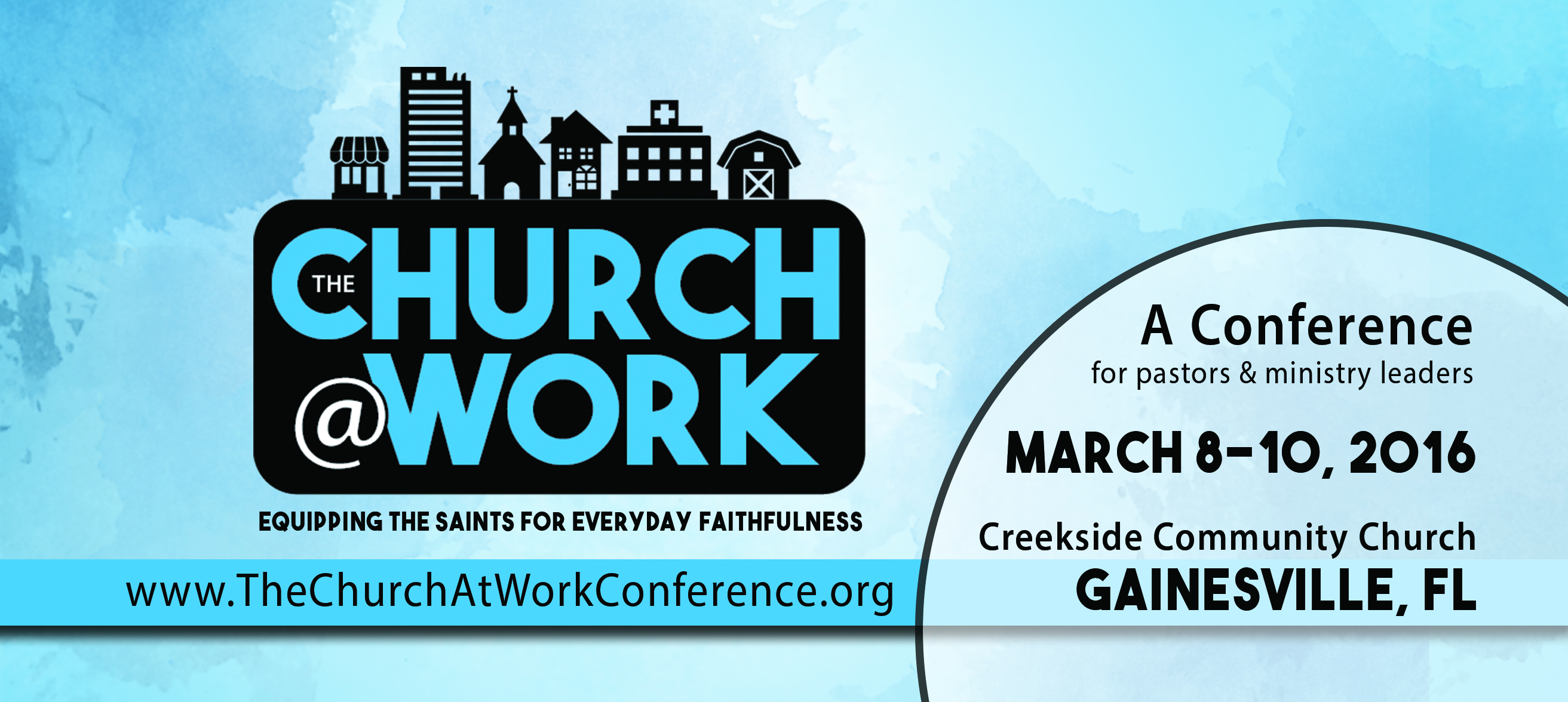For many years I worked in a fast-food restaurant. I spent long hours waiting on difficult and demanding customers, dealing with conflict, managing employees, evaluating financial statements, and cleaning clogged toilets. Being young in my faith, I didn’t understand the importance of my work in contributing to my own spiritual growth. All too often I viewed my work as an obstacle to my spiritual growth. During those times when it was a real pain, I thought, You know, if it wasn’t for my work and the difficult people I work with, I could be a better Christian.
I now realize how wrong my thinking was. The people I worked with and the work I did were God’s providential pathway to nurture my spiritual growth, not to impede it.
Many times our work seems less than ideal. Who of us cannot relate to country singer Johnny Paycheck’s heartfelt words of exasperation, “Take this job and shove it”? We can be treated unfairly at work. We can face prejudice, abuse of power, harassment, and injustice. Merely because of our Christian faith we can be sidestepped for promotions or even lose our jobs. Clearly some of our greatest disappointments, struggles, and suffering in life occur in the context of our work.
But is throwing in the towel the answer?

Detours are Purposeful
Dave is a friend who works in the highly competitive field of sports broadcasting. He is very good at his work and has crafted his vocational skill to a high level. His career has seen both highs and lows.
One of the low points occured in the final interview for a job he really wanted. The job would have meant wider network exposure, a big step in his career, and more generous provision for his family. While he was having dinner with the leaders of the company, he was asked what philanthropy he wanted to endorse as part of his broadcasting role in the community. When Dave mentioned his commitment and support for a nationwide nonprofit Christian sports ministry, the interview came to a screeching halt. His interviewers thanked Dave for coming and immediately asked for the dinner check. My friend had a long flight home knowing the job he’d wanted so badly and thought he’d secured was now gone.
Disappointments and discouragements are a part of every work experience, but they need not be seen as obstacles to God’s purposes in our lives. For the follower of Jesus, suffering—whatever its form—is one of God’s means for his formative work in our lives. Detours, difficulties, and delays are often some of the most transformative times in our journey of faith. Under the sovereign hand of God, suffering is not senseless; it is purposeful.
Work Is for Spiritual Formation
In Romans 5, Paul’s articulation and understanding of the gospel puts our suffering in proper perspective. God’s preferred path of transformation is not a path of ease, but it is one of enduring hope. As the apostle declares:
More than that, we rejoice in our sufferings, knowing that suffering produces endurance, and endurance produces character, and character produces hope, and hope does not put us to shame, because God’s love has been poured into our hearts through the Holy Spirit who has been given to us. (Rom. 5:3–5)
We must embed deeply in our hearts and minds that our work, though often filled with tribulations, is one of God’s main means for our spiritual growth and transformation. Work is where perseverance, proven character, and hope are forged in our lives.
When we face the formidable winds of workplace trials, rather than running from or becoming embittered by them, we would be wise to lean into them with trust and confidence, knowing that God has allowed them for a reason. Now, often this reason is not fully known by us. But through the eyes of faith, we find contagious joy and enduring hope. If we grasp the truth of God’s Word about our work, we can remain hopefully buoyant even in difficult job circumstances.
In The Message, Eugene Peterson paraphrases the apostle James’s inspired words in a way that I find very helpful: “Consider it a sheer gift, friends, when tests and challenges come at you from all sides.” (Does that sound like your workplace?) He continues:
You know that under pressure, your faith-life is forced into the open and shows its true colors. So don’t try to get out of anything prematurely. Let it do its work so you become mature and well-developed, not deficient in any way. (James 1:2–3)
As I look back at my life and vocational work, I see the truthfulness of these words. I now realize that some of the times of my greatest personal and leadership growth have been in the most difficult days. When my work has been the most demanding and when my inadequacy has been most inescapable, my spiritual growth has been most evident. As I have had to increasingly trust God for wisdom and strength in my work, my spiritual formation has trickled down into the depths of my heart, mind, and soul.
When we look at our work, we often look through the lens of our own personal fulfillment. Yet the New Testament writers look at it through the lens of our own spiritual formation, an outworking of our salvation and our sanctification. It is a good and desirable thing to have work that fulfills us. There’s nothing inherently wrong about pursuing a great job, but we must remember that it’s not necessary for God’s will to be accomplished in our lives. What is necessary is that we are formed into greater Christlikeness in our work.
If you are facing some really tough times in your work right now, don’t let the termites of discouragement eat away at your soul. Realize that God wants to use the difficulties you’re facing to forge greater Christlikeness and spiritual maturity in your life. Your work is not an obstacle to your spiritual growth; it’s a God-sized opportunity for you to grow.
This excerpt is adapted from Work Matters: Connecting Sunday Worship to Monday Work by Tom Nelson. Copyright © 2011. Used by permission of Crossway, a publishing ministry of Good News Publishers, Wheaton, IL 60187, http://www.crossway.org.
Tom is speaking at the upcoming The Church at Work conference in Florida in March. For more information, visit http://www.TheChurchAtWorkConference.org.
Editors’ note: TBT (Throwback Thursday) with Every Square Inch: Reading the Classics is a weekly column that publishes some of the best writings on vocation from the past. Our hope is to introduce you to thoughtful literature that you may not have discovered yet and, as always, to encourage you to know and love Christ more in all spheres of your life.
Is there enough evidence for us to believe the Gospels?
 In an age of faith deconstruction and skepticism about the Bible’s authority, it’s common to hear claims that the Gospels are unreliable propaganda. And if the Gospels are shown to be historically unreliable, the whole foundation of Christianity begins to crumble.
In an age of faith deconstruction and skepticism about the Bible’s authority, it’s common to hear claims that the Gospels are unreliable propaganda. And if the Gospels are shown to be historically unreliable, the whole foundation of Christianity begins to crumble.



































